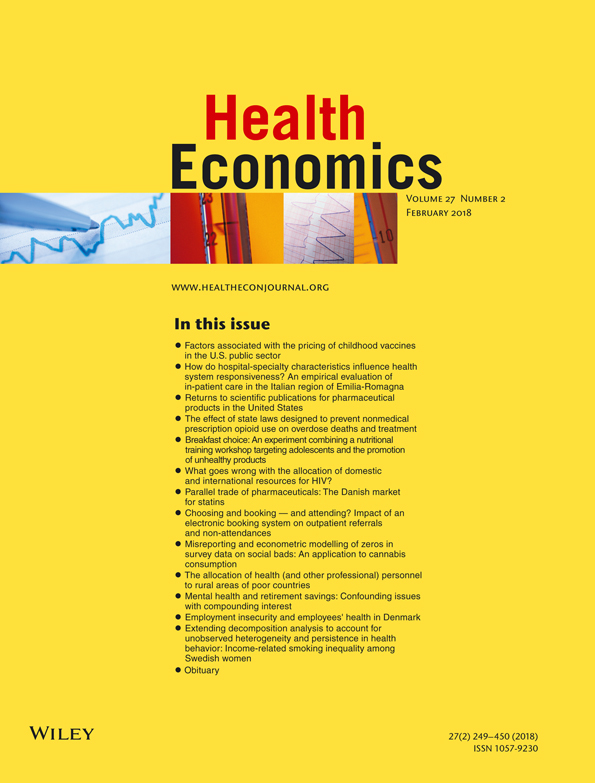Subjective well-being and minimum wages: Evidence from U.S. states
Summary
This paper investigates whether increases in minimum wages are associated with higher life satisfaction by using monthly-level state minimum wages and individual-level data from the 2005–2010 Behavioral Risk Factor Surveillance System. The magnitude I find suggests that a 10% increase in the minimum wage is associated with a 0.03-point increase in life satisfaction for workers without a high school diploma, on a 4-point scale. Contrary to popular belief that higher minimum wages hurt business owners, I find little evidence that higher minimum wages lead to the loss of well-being among self-employed people.




